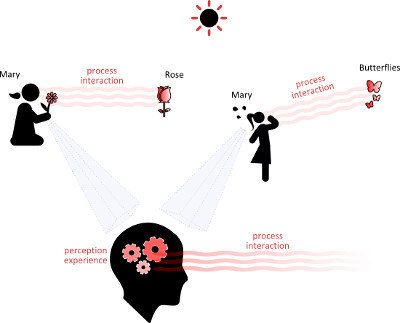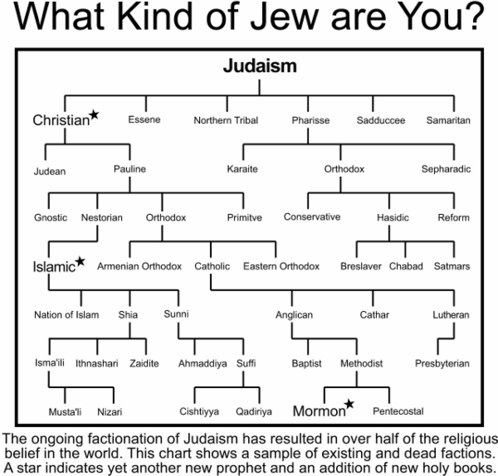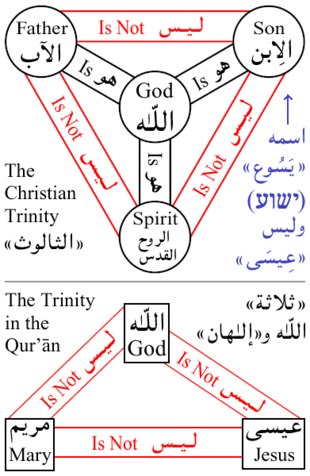Comments
-
Donald Trump (All General Trump Conversations Here)Guns, Germs, and Steel (1997) by Jared Diamond is a great read on how different societies evolved/developed differently. Diamond has a flair for spotting and avoiding biased tendencies towards understanding/explaining this stuff. Yep, some societies brought their pet germs with them, who just about took out other societies they came across.
Anyway, some groups somehow feeling (and acting) superior to others sure has been, and is, common enough. At least we can address such crap when encountered.
U.S. hate groups proliferate in Trump's first year, watchdog says (Ian Simpson, Reuters, Feb 2018) -
BeliefThere's also the in/voluntary aspect of beliefs.
Example of involuntary:
I have troubles choosing to believe, to be convinced, that there are pink elephants in the front-yard (say, maybe just for five minutes sharp).
If I hallucinate them, then I'd likely falsely believe that they're there, though perhaps somewhat justified.
So, there's a part of beliefs that have to be genuine, honest, which also is related to justification, indoctrination, or whatever.
I guess formation of belief is a whole study in its own right.
What are examples of voluntary beliefs?
Is seeing believing?
(Err sorry, not intending to off-track the thread.)
seeing is believing (Wiktionary entry)
Seeing & Believing (Raymond Tallis, Philosophy Now, 2013)
Seeing is believing (Nature, Dec 2005)
Seeing Is Believing (Richard I Cook, Annals of Surgery, Apr 2003)
-
Subjective Realism in a holographic universeWouldn't it be neat if a 1-dimensional model could be found, that our universe could be "encoded" in?
Would go well with computation analogies and simulation hypotheses.
When idealists hijack quantum mechanics I sometimes wonder why they still can't derive qualia therefrom.
Well, some such idealists are hell-bent on making room for their deity.
I came across one claiming to have proven the Christian Trinity from quantum mechanics, no less.
A Californian physics student I think.
(Admittedly, I didn't bother to read it.) -
Do we know that anything exists unperceived?, when looking at your piece of paper, put your hands in front of your eyes so you no longer see it.
Now move your hands away again.
1) Did the paper disappear? 2) Did a goat appear where it was? 3) Do you see the paper again?
(The former two may be evidence of David Copperfield playing tricks.)
Wouldn't it be neat, if, say, a piano was falling down towards you, and you could look away, et voilà, the piano would no longer exist? :)
Bit like that old story of ostriches sticking their heads in the sand when they see something scary.
The most parsimonious line of thinking seems to degenerate into solipsism (or similar idealism), something like that. (N) -
Can God defy logic?What? Does that mean? — Cavacava
Having abandoned logic, you've abandoned identity ("it's fine saying that G is not G"), non-contradiction (G is possible and impossible, G both refers and does not), and some other things.
So, with G there's no longer anything in particular that's talked about.
Maybe G is just goat. (And not goat, but I prefer goat.) :)
To me it seems mostly like linguistic suicide, baby-talk, shooting oneself in the foot.
Which sort of makes me wonder what people are talking about here, well mostly the Yes voters. -
Can God defy logic?If G is illogical in this manner, then it's fine saying that G is not G.
(¬(G = G)) ∧ (G = G)
Not sure why anyone would make such a move; they'd no longer be talking about anything in particular.
Weird :o -
Big bang in a larger-verse?Thanks for the posts all.
I am unsure what you are suggesting though, Jorn, with the title and all... — TimeLine
It seems that, by current findings, big bang inflation + expansion does not account for the spatial extent of the universe.
Admittedly I haven't gone through the motions/calculations myself, but that was my thinking with the opening post.
how can portions of the universe which were next to each other 14 billion years ago be more than 14 billion light-years apart now? — T Clark
The light speed limit applies to mass, not to spatiotemporal geometry (while going by relativity).
So, big bang inflation + expansion itself has "carried" things apart at seemingly superluminal speeds, if you will.
(If that's what you meant.)
Anyway, the three references in the opening post taken together, seems to indicate that the big bang was sort of "localized" spatially.
Even if the spatial geometry is not quite flat, it's close enough to suggest a (much) larger extent than what might have come about over some 14 billion years.
Maybe you're up to par with the latest, @apokrisis? -
Trump and "shithole countries"... said, did not, did too, ... :D
Trump Says Haiti Is Not a 'Shithole,' Just 'Very Poor and Troubled'
Ryan Sit
Newsweek
Jan 2018 -
We cannot make relationship with GodThere's plenty talk about these supposed beings.
Yet, the talkers don't show them, and they don't show, all that's left is the talk.
The talkers would (at least) have to come up with (invent?) an appropriate, coherent response to ignosticism for such talk to turn out more than mere fancies, more than just making things up.
As far as I can tell, most talkers end up postulating "something else entirely" (implicitly unknown), but still "mind", s'gotta be "mind".
The talk about atemporality and such tend to get ditched due to incoherence or incompatibilities with other supposed characteristics (that apparently are deemed more "important"). -
Trump and "shithole countries"Aren't leaders supposed to set an example? And to be reliable? ...?
Promoting the sentiment expressed by calling places "shitholes" shifts focus away from (or deprioritizes) helping out, for example. It's to be avoided/expelled, which (incidentally, unsurprisingly) affects people. Sheep that flock to defend Trump's expression then happily propagate such a trend.
Oh well. I guess the future will tell what Trump's leadership brought to the table. -
God cannot decide“Transcends time” or “outside of spacetime” or some such does have implications.
- Suppose x is defined as not spatial, “outside of space”. Well, then obviously x is nowhere to be found. And x cannot have any extent, volume, area, length, or the likes, not even zero-dimensional (like a mathematical singularity).
- Suppose x is defined as atemporal, “outside of time”. Well, then there can be no time at which x exists. And there can be no duration involved, x cannot change, or be subject to causation, cannot interact, and would be inert.
Hence, anything that partakes in the world, interacts, is active, cannot be “outside space/time”.
The closest that comes to mind would be something like “abstract objects” (assuming reification).
An object is abstract (if and) only if it is causally inefficacious. — Abstract Objects, Stanford Encyclopedia of Philosophy
In terms of causation, the 2nd bullet above only goes as far as: atemporal implies cannot be an effect in part or whole.
Obviously there cannot be anything that “transcends existence”, and “transcends spacetime” seemingly converges on that. -
A paradox related to God's foreknowledgeThat is not correct. We always do what God knows and there is no conflict between God's knowledge and free will unless we are informed and wish to do opposite. — bahman
The typical idea towards this, is a block universe "viewed from the outside" if you will.
As per above, I don't think this can be coherent if it includes "outside of time" observed by a mind.
Might not have to be atemporal, though, at least not necessarily, though the block universe usually includes all of time.
Time and such (older parallel thread) -
A paradox related to God's foreknowledgeSo you are saying that an atemporal God cannot communicate? — bahman
Well, cannot be communicated to, at least.
(Which incidentally would make prayer futile.)
More pertinently, cannot be a mind.
Minds are not inert, inactive, quite the opposite. -
Poll: out of body and near death experiencesI have had visions of other beings, such as Devils, Angels, and deceased people. — bahman
Might be more interesting if you had visions (plural) of someone/something entirely unknown to you, that you could then later verify/falsify independently. Make a statistic out of it.
I am however puzzled with the fact that what I sometimes see in my vision cannot be seen by others. The beings in my vision behave like normal people and seems to have thoughts and feelings. I cannot say that my vision is construct of my brain activity when I am awake. How couldn't they be true when they seem very real like others? — bahman
If you slapped me in a dream, would you then expect me to have a bruise the next day in real life...? They're different kinds of experiences (from memory, I think it was Searle that had some good points on this stuff).
Out of body and near death experiences share a category with hallucinations and dreams. — opening post -
Poll: out of body and near death experiencesSuppose (for the sake of argument heh) that we're imperfect perception/conception organisms.
What might we then expect...?
Ayer had an epic experience:
A. J. Ayer – ‘What I Saw When I Was Dead’ (Peter Sjöstedt-H – philosopher; Sep 2017) -
A paradox related to God's foreknowledgeYou are subjecting God to the constructs of time, which is a mistake. The reality is that everything that ever has existed or happened, and everything that ever will exist or happen, can just be seen as being. A sort of singularity of things going on. We cannot help but view things through the lens of time because that's how our brains process information, but time is not something "out in the world", it only exists inside our minds. — JustSomeGuy
Well, something that's atemporal, "outside of time" cannot interact, cannot see or observe, which would require being subject to causation (an effect in part or whole).
Would be inert, immutable, dead, absent of freedom, etc, unless you posit something like another temporal dimension (not exactly parsimonious).
Check this post above. -
A paradox related to God's foreknowledgeWhat is the issue related to atemporal God? — bahman
A copy/paste from elsewhere (without embedded links, too lazy):
Mind is typically used as an umbrella term, including the likes of, or synonymous with some of: (1st person) experiences, qualia, (self)awareness, consciousness, sentience, thinking, ideation, feelings, pain/joy/love, perhaps “free will” (whatever that may be exactly, if anything); mind is such activities, such parts of individuated selves.
- Suppose x is defined as not spatial, “outside of space”. Well, then obviously x is nowhere to be found. And x cannot have any extent, volume, area, length, or the likes, not even zero-dimensional (like a mathematical singularity).
- Suppose x is defined as atemporal, “outside of time”. Well, then there can be no time at which x exists. And there can be no duration involved, x cannot change, or be subject to causation, cannot interact, and would be rather inert.
Yet minds partake in the world, interact, are active. -
A paradox related to God's foreknowledgeThere's a more straight forward incompatibility to be found, as far as I can tell.
Suppose one entity, or single mind, that's both omniscient and free (to change it's mind).
Mind and freedom to change it's mind already implies temporal. †
Freedom (to change mind) is independent of whatever, including whatever knowledge.
In principle it's solely dependent on (the existence of) said mind, if it's to be free at least.
So, freely changing mind along the way cannot be known prior by the mind, since otherwise it wouldn't be free (to do so).
Conversely, in case said entity already knows everything at an earlier time, then that means the knowledge is true.
Which, in turn, cannot be false later on, and hence means the entity cannot change mind by then, since otherwise it would be false.
Not because omniscience itself is causative, but just because the knowledge is true.
(As an aside, this line of reasoning doesn't involve modal logic per se.)
Note, this stuff pertains to just one mind that's assumed both all-knowing and free, it's not about any other entities/minds.
Thus, God cannot be a mind that's both omniscient (with foreknowledge) and free.
† Some responses to the incompatibility will have the entity (or God as a special case) be "atemporal".
I think this may be even more problematic, though.
EDIT: added "by the mind" to clarify -
Perspective, the thing that hides behind consciousness, not to detract from your angle with the opening post, but perhaps perspective could be contrasted by omnipresence if you will (ignoring the religious denotations).
So, we're locally individuated (and mutually separated), which automatically sets a perspective, both in scale, scope and experience.
My here-now is hence more or less my (mutable) perspective, which differs from others'. -
Where are words?... Continued DiscussionThe sun is nothing apart from your experience of it. So the warmth + the sight + etc. all the other impressions of it. Why do you feel the need to postulate a sun outside of experience? — AgustinoAnd building on that, likewise, your body is also a cumulation of experiences, and nothing more. So in the end, it's all experience - both your body and the sun. There is nothing apart from the experience. — Agustino
Well, I for one like to think there's more to the world than what meets the eye (including my neighbor's dog). Solipsism is a performative contradiction. -
Where are words?... Continued DiscussionYour Color Red Really Could Be My Blue (Natalie Wolchover, Live Science, Jun 2012)
Calling roses, strawberries, blood, apples, Santa, etc red is a matter of appropriate language use (or predication).
In a different sense, the question posed by the Live Science article above may not be quite right.
That special format of personal experiences we call red (qualia) is more like an occurrence.
Something that happens for the experiencer, either part of a larger process (perception), or otherwise just a personal occurrence (dream, memory recall, hallucination).
Sometimes the process can go awry, e.g. synesthesia, phantom pain, hallucination.
Strictly speaking, such qualia happen for individuals, so "your red" being "my blue" from the article seems misleading; the article is worthwhile, though.
Fortunately we're rather alike, so unlike echolocation of bats, we can identify sufficiently shared experiences and call some of them red.

-
TransubstantiationNow you're just making noise, @Agustino, moreso than other discussions on the topic that I'm aware of anyway.
And it's a bit disingenuous to tell others what they're talking about.
Let me know if you want to stick to the post.
Anyway, incidentally watching the mass in Rome; those folk are big on transubstantiation, unlike, say, the Jews and the Muslims.


-
Transubstantiationpeasant claptrap — Agustino
I was talking about Hinduism (which includes some polytheist varieties), Christianity (Catholics, Protestants, Jehovah's Witnesses), Islam (Sunnis, Shias), Mormonism, Scientology, you name it. All those there that people get assimilated by and start taking seriously.
If anything, Christianity is largely responsible for the elimination of this type of superstition. — Agustino
Seems the Muslims have taken over, where the Christians left off?
- Saudi Arabia's War on Witchcraft (Ryan Jacobs, The Atlantic, Aug 2013)
- Saudi religious cops trained to fight magic (Staff, Emirates 24|7, Feb 2016)
If a deity told you the Truth, then what free will would you have? None. — Agustino
Looks like an ordinary non sequitur to me. But I wasn't referring to achieving omniscience, rather, that the authority (deity) set the record straight among ...
the countless human claims of supernatural deities, their elaborate plans, what they want, require or demand, etc — jorndoethe incompatible, ambiguous, inconsistent, spurious words of fallible humans — jorndoe
... for me to take any one of them more serious than any other. But there's no such arbiter.
You start talking about something you call "Yahweh", you don't show Yahweh, Yahweh doesn't show, all that's left is your talk. Others talk about something they call "Vishnu", they don't show Vishnu, Vishnu doesn't show, all that's left is their talk. Yet others talk about ... Exactly as if Yahweh, Vishnu, etc, are fictions. I wonder why... Don't you?
I also observe that there are little-to-no means of differentiating existence of all these entities (and their characteristics, plans, demands). It's all equally dubious. Exactly like grandiose stories told by fallible (obsessed) humans.
The simplest coherent explanation is that there would be no fake doctors if there were no real doctors — Agustino
I'd say we can differentiate fake and real doctors. Differentiating fake and real fantasies, on the other hand, ... :D -
Transubstantiation@Agustino, I have no particular reason or obligation to take the countless human claims of supernatural deities, their elaborate plans, what they want, require or demand, etc, seriously.
If some deity of theism existed and wanted me to know it did, or had critically important messages for me, then it would have no problems what so ever letting me in on that.
Isn't that what qualifies something as a deity in the first place (omnipotence, omniscience, omnibenevolence, non-deceptive, trustworthy, etc)? And, ex hypothesi, such a deity would be the only authority on its messages. It's not like I'm strangely "resistant" or anything, and such a deity would know that already.
Meanwhile, I'm certainly not going to take all the incompatible, ambiguous, inconsistent, spurious words of fallible humans for it. Why would anyone? (Could anyone, even, given all the incompatibilities, ambiguities, inconsistencies, ...?) Requiring other humans to indoctrinate me isn't something I'd expect of a worthwhile deity. No, that's just gullible, biased, non-thinking tomfoolery. (Perhaps akin to delusion, as mentioned by @Harry Hindu.)
Where does that leave things? Those claims can't all be right, but they could all be wrong. What's the simplest coherent explanation? -
Evidence of Consciousness Surviving the BodyMost agree on mind-body-other interaction, yes?
- I feel hungry, so I grab some grub, and don't feel hungry any longer (if animals consistently ignored or didn't get the feeling, then they'd starve and die)
- I want a sip of my coffee, so I reach out, grab the cup, and take a sip (no, I'm not inflicted by alien hand syndrome)
- I miss the nail, the hammer hits my finger instead, and I get a painful sensation that makes me more careful in the future
- I hear some yelling, and go check what the deal is
- ...
So, since the supposed "out of body floating self" can interact with it's body, it can presumably interact with whatever else (which is verifiable), yet that apparently does not happen. Spurious.
Can this "incorporeal observer" then only be affected by the world (i.e. be an effect in part), but not affect the world (i.e. be a cause in part)...? Except, not affected by gravity, though, maybe. For that matter, wouldn't any observed light be subject to transformation, which hence would be detectable? Dubious.
Somehow "seeing" without eyes, "hearing" without (inner) ears, "remembering" without a head, "fits" in exactly one body (the one required to report the experience), ...? When and how is this supposed "disembodied astral soul" installed in the body anyway? Suspicious.
Alien abduction stories at least report seeing with their eyes, and those are generally thought questionable already.
Something's amiss. A measure of healthy skepticism is warranted. -
Why has the golden rule failed?Well, we can assume that anyone (including non-humans, but not rocks) likes freedom and dislikes harm by default.
I mean, don't you? (This could be a litmus test of your morals.) ;)
Isn't that sort of an auto-expectation of anyone with some moral awareness as we know it?
Also codified by whatever historical documents, including (emphasis mine):
And (emphasis mine):Liberty consists of doing anything which does not harm others: thus, the exercise of the natural rights of each man has only those borders which assure other members of the society the fruition of these same rights. These borders can be determined only by the law. — Declaration of the Rights of Man and of the Citizen of 1789, Article IV
Everyone has the right to freedom of opinion and expression; this right includes freedom to hold opinions without interference and to seek, receive and impart information and ideas through any media and regardless of frontiers. — The Universal Declaration of Human Rights of 1948, Article 19
So, this stuff sets a default anchor for the Golden Rule (as opposed to self-interest), where violation may entail forfeiture of some or all (morals are generally social matters).
I'd prefer masochists not follow the Golden Rule blindly.
Of course the complexities of life entails much more complex regulations and injunctions and whatnot.
Maybe we can't reduce morals to a simple declaration. Wouldn't that make us "less human" anyway...? -
Physical vs. Non-physicalIsn't physical typically contrasted by mind and abstracts respectively ...?
Mind is not abstract; abstracts may be contingent on mind.
Mind could be experiences themselves, qualia, dreams, feelings, etc, as contrasted with whatever perceived extra-self, others, processes, objects, all that.
Abstracts are generalizations, not concrete, perhaps universals, acausal.
Some occasionally use non-quantifiable to contrast physical.
Anything else typically contrasted by physical?
Whether minds and abstracts are (contingent on) physicalities is up for debate I guess. -
The problem with the concept of pseudoscience(I was just discussing this with some other folks)
model → evidence convergence
Scientific progress:
The Flagellants (superstitious fools) probably made the Black Plague worse. Later medical research and antibiotics largely eradicated the Plague.
Aristotelian physics was long since abandoned. But it was a start.
Newtonian gravity from some 330 years ago is taught to this day, and used routinely by NASA and engineers around the globe. Technically, relativity supersedes Newtonian gravity, due to domain-specificity. Somewhat similarly, we already know that relativity and quantum mechanics cannot both be quite “right”, though both are exceedingly successful in their respective domains — that is, they’re established, justified descriptions. (Much effort has gone into, and is going into, unification.)
It’s worth noting that models like relativity and quantum mechanics are descriptive, not prescriptive. It’s a fallacy to abstract the described away, only to go ahead and reify the descriptions instead.
We learn from when we’re wrong as well. When we discover that theories or propositions are incorrect or inaccurate, then that by itself is knowledge acquisition. Sometimes ancients had the audacity to postulate something :o and then later we found out that the postulates could do with some revisions, or perhaps be replaced. But they tried, started something. (y)
‘Tis better to have loved and lost
Than never to have loved at all. — Tennyson
Computers, communicating worldwide over the Internet, GPS (which depends on relativity), medical science (don’t forget taking your kids to the doctor on occasion), the International Space Station, etc, clearly demonstrates that we can increase our knowledge about it all. -
Welcome to The Philosophy Forum - an introduction thread[...] and better my understanding of the universe — SnowyChainsaw
A noble cause shared by many. :)
Incidentally, my interest in philosophy was motivated by much the same.
I'll just add that philosophy isn't necessarily the most informative in this respect, rather there's a complex of philosophy, reasoning, science, and such involved.
Welcome to! -
The problem with the concept of pseudoscienceScience is more methodological than axiomatic/foundationalist.
Something like self-critical, bias-minimizing model → evidence convergence, where tentative hypotheses can be derived from the models. Evidence, observation, experimental results, all that accumulate, and models converge thereupon.
The success of science (the most successful epistemic endeavor in all of human history) is then evidence of science being onto something, so I guess you might say self-justifying in that sense.
That said, there are some things that's fallen out of quantum mechanics for example, that seem unfalsifiable. And, of course, science utilizes mathematics and such, which itself is more axiomatic. -
TransubstantiationLet's make sure I understand correctly - in order to show that realism is wrong, I have to use methods developed based on the principles of realism. Is that right? — T Clark
You mean realism as opposed to idealism ("mental monism")? May be a bit peripheral here, unless I misunderstand. Well, I'm definitely not going by solipsism. :D
I was just pointing out a distinction:
Say, when I enjoy a cup of coffee in the morning, the joy (quale) is just mine, part of me when occurring. (And coffee is enjoyable, if not necessary, oh yes.) On the other hand, when I hang out with my buddy, there's more to my buddy than my experiences, not part of me. (My buddy doesn't like coffee, the darn sacrilegiously heretic blasphemer.)
Mentioned introspection illusions, hallucinations, dreams are in category with the joy (self), not the buddy (other). Externalization of Agustino's personal experiences is fraught.
Incidentally, what Agustino calls "scientifically observable" indicates activity localized to Agustino and not much else (cf Libet or whomever they all are). Bio-electrical-chemical? -
Transubstantiationin mystical experiences there are changes in the brain that are scientifically observable — AgustinoA form of altered state of consciousness that is ineffable and involves gaining insight into the deeper nature of reality. — Agustino
Introspection illusions are inconsistent, bad evidence, for a reason.
Purely phenomenological experiences are not of something extra-self; qualia are parts of the world belonging to individual experiencers. Such self-externalization is like someone hallucinating pink flying elephants implying they're really out there, or me expecting you to get real life bruises from me slapping you in a dream.
God helmet experiments, magic mushrooms, not eating/drinking plus bodily stress, etc, are fairly well-documented.
Promoting such personal experiences as specific religious evidence with other people, is like promoting a kind of mind-regulating bias. -
Time and suchSeems to me that change takes time, so as to be classified as change in the first place.
Which, together with the mentioned empirical perspective (no change implies no time), intrinsically relates time and change.
Was it Aristotle that noted they're not the same thing, though?
Change and motion and such could be many things, whereas time is more specific (e.g. concurrent duration). -
Time and suchIf time is the same for the universe, then how does any of the guys here explains "the effect of the twins " according to Einstein's theory?? — vesko
Check: Twin paradox
Time dilation has been verified, and is in use. -
Time and suchOK, so back to my questions then. What is it within the macro-domain, which relativity is supposed to provide the most accurate description of? — Metaphysician Undercover
The (macro) evidence is what relativity describes most accurately to date. Samples:
Tests of general relativity » Perihelion precession of Mercury
Gravitational lens
Global Positioning System » History
Error analysis for the Global Positioning System » Relativity
I know the special theory of relativity quite well. — Metaphysician Undercover
Here's more, has references: Theory of relativity
If you find these models wrong, then feel free to write your objections down, and post (perhaps in a new opening post, depending). — jorndoe
(If possible, I'd prefer this thread not to go full metal anti-science.) -
Time and suchQuote from the opening post:
(An odd but seldom noticed consequence of McTaggart's characterization of the A series and the B series is that, on that characterization, the A series is identical to the B series. For the items that make up the B series (namely, moments of time) are the same items that make up the A series, and the order of the items in the B series is the same as the order of the items in the A series; but there is nothing more to a series than some specific items in a particular order.) — https://plato.stanford.edu/entries/time/#McTArg -
Time and suchThe macro-domain, @Metaphysician Undercover, as opposed to the micro-domain of quantum mechanics, as mentioned by . Much effort has gone into and is going into unification.
-
Time and such, scientific models are descriptions (contrast with prescriptions). Evidence is the justification. I don't really think it's reasonable to ask for a tutorial on relativity here; there's plenty good material (including on the Internet), that you can read up on. If you find these models wrong, then feel free to write your objections down, and post (perhaps in a new opening post, depending). Meanwhile, relativity isn't controversial or anything.
jorndoe

Start FollowingSend a Message
- Other sites we like
- Social media
- Terms of Service
- Sign In
- Created with PlushForums
- © 2026 The Philosophy Forum




